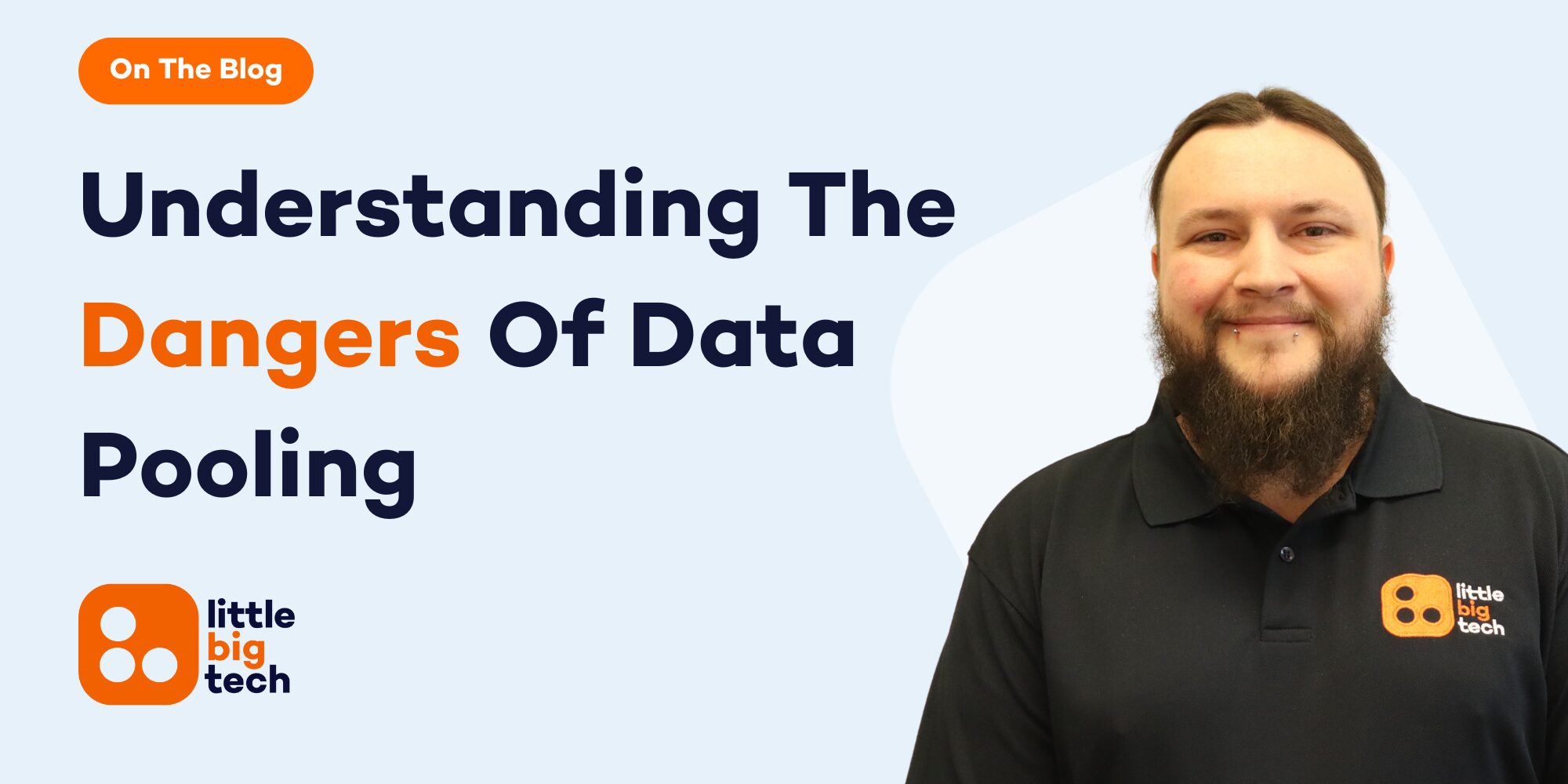- The Dangers Of Data Pooling And Its Impact On Sensitive Information
- What Is Data Pooling and How Does It Work?
- How Data Pooling Exposes Sensitive Business Information
- Real-Life Examples Of Data Pooling Gone Wrong
- How To Prevent Data Pooling Risks in Your Business
- Expert Tips for Safeguarding Your Business Data
The Dangers Of Data Pooling And Its Impact On Sensitive Information
Data pooling is a common practice in businesses today, where multiple data sources are combined to enhance analysis, improve customer insights, and boost business strategies. However, while pooling data can provide significant benefits, there are considerable dangers involved—especially when it comes to sensitive information.
When data from various sources are gathered and stored together, the risks of security breaches, improper handling, and legal consequences grow exponentially. The dangers of data pooling are often underestimated, but businesses need to be aware of how such practices can expose sensitive company and customer information if not handled properly.
In this article, we will explore what data pooling is, how it can put your business at risk, and what you can do to protect your sensitive data. Understanding these dangers is crucial for businesses to avoid costly breaches and protect their reputation.
What Is Data Pooling and How Does It Work?
Data pooling involves the collection and combination of data from multiple sources or systems into a single database. The goal of this practice is to allow businesses to gain deeper insights by aggregating information for more effective decision-making, better customer targeting, or improved product development.
For example, a business may pool customer data from its website, customer service platforms, and social media channels to create a comprehensive customer profile. This can help improve marketing efforts or customer service response times by understanding customer preferences and behaviour.
While data pooling offers businesses powerful insights, it also presents several risks, particularly when sensitive information is involved. When large volumes of data are pooled together, it becomes a prime target for cybercriminals. Additionally, if businesses fail to secure or anonymise the data correctly, they expose themselves to significant security threats and legal ramifications.

How Data Pooling Exposes Sensitive Business Information
The dangers of data pooling become evident when we look at how pooled data, if not protected properly, can easily expose sensitive business information. This can include financial records, intellectual property, and sensitive customer data, such as personal addresses, phone numbers, and payment details.
Data pooling increases the volume and variety of information stored in a single location, making it a more valuable target for hackers. When data is pooled improperly, it can lead to:
-
Increased Vulnerability to Cyberattacks: Pooled data, especially when stored in centralised systems, can be more susceptible to attacks like hacking, ransomware, or data breaches. If an attacker gains access to a single data pool, they could potentially access everything within it, from employee records to financial information.
-
Unintentional Exposure of Personal Data: If the data pooling process does not account for privacy concerns, sensitive customer information could be exposed unintentionally. For instance, personal details like addresses or payment methods might be included in aggregated data that’s shared without adequate safeguards.
-
Loss of Control Over Sensitive Data: As businesses collect and pool data, they may lose track of how that data is being handled. Without clear data governance policies, multiple parties could gain access to sensitive data without proper security measures in place, leading to potential leaks or misuse.
-
Non-Compliance with Data Protection Laws: For businesses in the UK, failing to protect pooled data adequately can result in non-compliance with data protection regulations like the GDPR. This could lead to hefty fines, legal consequences, and a loss of consumer trust.
Real-Life Examples Of Data Pooling Gone Wrong
There are several high-profile examples where businesses have experienced severe consequences due to data pooling gone wrong. These cases highlight the importance of understanding and mitigating the dangers of improperly managed pooled data.
1. The Facebook Data Breach
One of the most notorious examples involves Facebook’s Cambridge Analytica scandal. In this case, user data was pooled from various sources, and the improper handling of this data led to a massive breach of privacy. The data was used without consent for political profiling and targeted advertising, which led to widespread backlash, legal actions, and a significant loss of trust in the platform.
2. The 2021 Cyberattack on the UK National Health Service (NHS)
In 2021, a cyberattack on the NHS exploited vulnerabilities in its data systems. The pooling of patient data from various departments, including personal medical information, was exposed when the data wasn’t adequately secured. This attack caused a disruption in healthcare services and raised concerns about the safety of sensitive data held by government and healthcare institutions.
3. The Capital One Data Breach
Capital One, a major financial institution, experienced a massive data breach due to mismanaged pooled data. Hackers exploited a vulnerability in the cloud-based system used to pool data from credit applications. This breach affected over 100 million customers, exposing personal and financial data, including social security numbers and credit scores.
These real-life examples demonstrate the dangers businesses face when they pool sensitive data without proper security measures in place. The consequences can be severe, from financial losses to reputational damage.

How To Prevent Data Pooling Risks in Your Business
To avoid the dangers of data pooling, businesses must take proactive steps to protect pooled data from breaches, leaks, and misuse. Here are several best practices to secure your data:
-
Use Strong Encryption
Ensure all pooled data is encrypted both at rest and during transmission. Encryption helps protect the data from unauthorised access, ensuring that even if it is intercepted or breached, it remains unreadable. -
Implement Access Control
Limit access to pooled data to only those employees or systems that absolutely need it. Use role-based access controls (RBAC) to ensure that sensitive information is only available to the appropriate parties. -
Regular Audits and Monitoring
Conduct regular security audits and monitor your systems to identify vulnerabilities or suspicious activity. Keeping a close eye on access logs and system usage can help you quickly detect any unusual activity that could indicate a breach. -
Data Anonymisation and Minimisation
When pooling data, ensure that any personally identifiable information (PII) is anonymised or minimised. This reduces the risk of exposing sensitive data while still allowing for the benefits of pooled information. -
Employee Training
Train employees on the importance of data security and the risks of mishandling pooled data. Employees should understand the steps they need to take to secure the data they have access to and report any potential breaches. -
Use Trusted Third-Party Providers
If you’re working with third-party vendors to manage your data, make sure they follow strict security protocols and comply with data protection regulations like GDPR. Only work with vendors who have a proven track record of safeguarding sensitive data.
By implementing these security measures, businesses can significantly reduce the risks associated with data pooling and keep sensitive information safe.
Expert Tips for Safeguarding Your Business Data
The dangers of data pooling are very real and can expose sensitive business and customer information to a range of security risks. By understanding these risks and taking the necessary precautions, businesses can protect themselves from costly breaches and data leaks.
To secure your business data, focus on using strong encryption, limiting access to sensitive information, conducting regular audits, and training your employees. Implementing these best practices will ensure that your business can safely pool data without compromising security.
If you need help improving your data security, we at Little Big Tech offer expert advice and solutions to protect your sensitive business information. Get in touch today and let us help safeguard your business against cyber threats. Call us at 03333 055 331 for a consultation on securing your business’s data.









